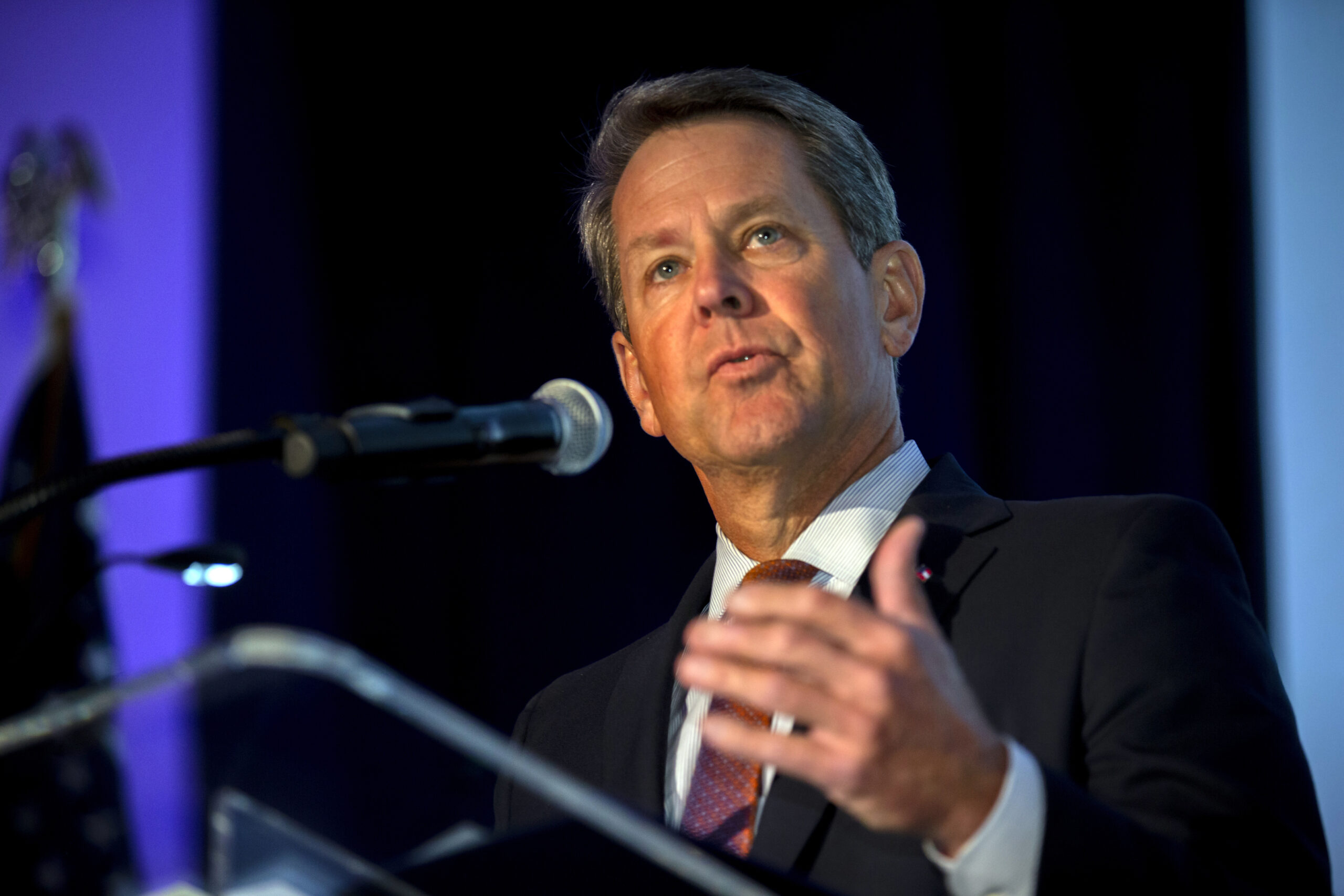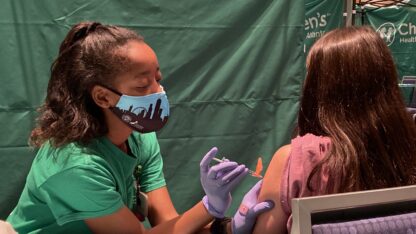Kemp Orders State Shutdown To Fight COVID-19; Cities Prep For Surge At Hospitals

The new rules, which the governor will issue Thursday, will run from Friday through April 13.
Stephen Morton / Georgia Port Authority via AP
Gov. Brian Kemp is ordering Georgians statewide to “shelter in place’’ to fight the spread of COVID-19 in the state.
The governor, in adopting stronger measures against the virus, cited a CDC warning this week that as many as 25 percent of people infected may not show symptoms — a startling figure that may hamper measures to contain COVID-19.
Kemp called the CDC finding “a game-changer.’’
“Those individuals could have been infecting people before they ever felt” symptoms, Kemp told reporters gathered at a press briefing Wednesday at a plaza across from the Capitol. “We didn’t know that until the last 24 hours.”
The new rules, which the governor will issue Thursday, will run from Friday through April 13. Many of the details were still being formulated as of late Wednesday, but Kemp specified that he would sign an order to close K-12 public schools through the rest of the academic year.
“We are taking action to protect our hospitals, to help our medical providers and prepare for the patient surge that we know is coming,” he said.
As of 7 p.m. Wednesday, Georgia had 4,748 coronavirus cases, with 154 deaths.
The governor had been urged by many political leaders, public health officials and organizations to execute a statewide order.
A letter to Kemp from several hospital CEOs, dated March 24, said “the solution is simple but challenging – Georgians need to stay home. By staying home, isolating our households as much as possible, we can slow down the spread of this infection. It literally will save lives.’’
Gov. Ron DeSantis of Florida, who also had resisted stricter statewide measures, on Wednesday ordered state residents to largely stay at home. The governors of Mississippi and Nevada also announced new plans for stay-at-home orders. Across Georgia, cities and counties already had issued shelter-in-place orders.
Kemp emphasized that the expected surge of cases may potentially swamp health care facilities across Georgia. “We’ve got to be more aggressive,’’ he said. A policy of social distancing and staying at home ‘‘is buying us more time to get additional hospital beds ready, order supplies, and continue to prepare for more positive cases.’’
Georgia health care systems are working to expand bed capacity, state officials say. Phoebe Putney in Albany, the hardest-hit hospital in the state, with 31 deaths from COVID-19, is planning to open beds on another campus.
Piedmont Healthcare in Columbus is putting 36 new beds in the old Doctors Hospital building for coronavirus patients, thanks to a gift from Aflac’s chairman.
Kemp “has asked each major hospital system to look critically within their footprint at increasing capacity,’’ Ryan Loke, the governor’s health policy adviser, told GHN.
The state has purchased four mobile units, with 20 to 24 beds each, to be deployed to hot spots in the state, said Kemp, adding that there’s discussions about using convention center sites to handle an overflow of patients.
Kemp, addressing a group of reporters who were spread out according to social distancing guidelines, cited a model from the Institute for Health Metrics and Evaluation, which estimates that the coronavirus surge in Georgia will peak on April 23. “Flattening the curve now’’ will help lessen the expected surge of COVID-19 patients, he said.
The state is still seeking more health care staffing, ventilators and personal protective equipment.
Georgia’s capacity for COVID-19 testing continues to be a concern. Kemp said.
“Competition among states for access to commercial labs is at an all-time high,’’ he said. “Expanding testing remains a top priority. The status quo is unacceptable.’’
State officials also said there are now 47 long-term care facilities with at least one coronavirus case. The frail and elderly individuals who live at such facilities are the most vulnerable to the disease. Dr. Kathleen Toomey, the state Public Health commissioner, said epidemiologists are analyzing the nursing home and assisted-living outbreaks.
The Georgia National Guard has deployed troops to an Albany nursing home and one in Mitchell County, each in southwest Georgia. The Guardsmen are doing infection control, training and disinfection. Georgia National Guard Adjutant Gen. Tom Carden said they are targeting the facilities with the highest numbers of cases.
Kemp and Toomey hailed Georgia physicians, nurses and other health care workers as heroes.
Loke said the state has sent 14 National Guard medical support teams to hospitals across the state.
“Each member of this team has some level of medical background and are there to support the hospital in any capacity that they deem fit,’’ Loke told GHN. “We are also working with staffing agencies in Georgia to provide additional support where needed – and these conversations are ongoing with several hospitals.
“The governor hosted a conference call with the major Atlanta hospital systems earlier this week and they all agreed to work together and support each other in this crisis,’’ he added. “There’s no time for competition or politics – and everyone is rowing in the same direction on this.’’
This story originally was published at Georgia Health News.








